Troubleshooting: Why Do My Light Bulbs Keep Burning Out? September 18, 2024 – Posted in: Lighting Information, Home Lighting
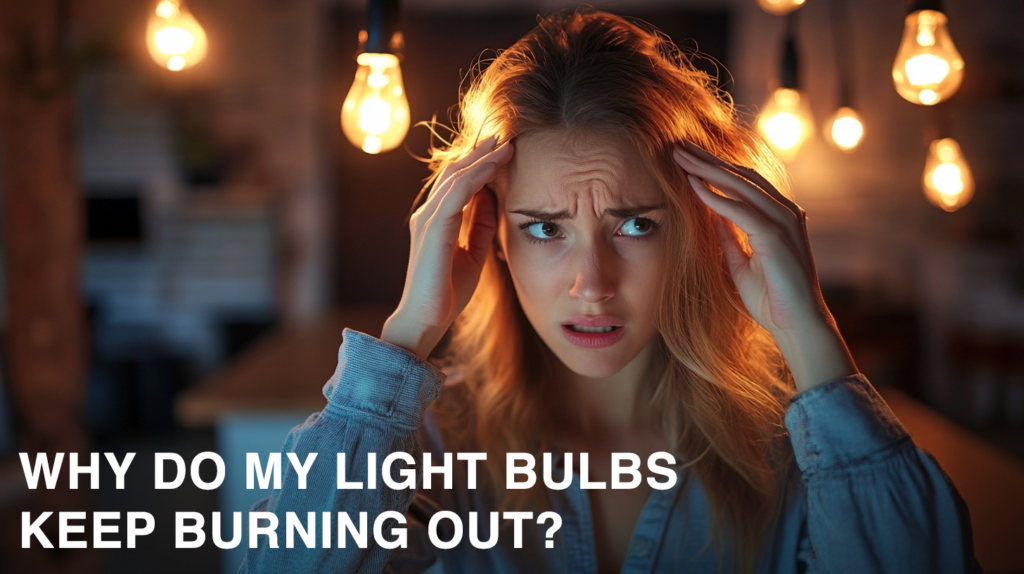
Table of Contents
Are you tired of constantly asking, “Why do my light bulbs keep burning out?” It’s incredibly frustrating, isn’t it? We’ve been through it, too. After looking into the causes, we discovered several reasons why your light bulbs might be burning out prematurely.
In this article, we’ll help you understand these issues and guide you to practical solutions. Stick with us as we shed some light on this all-too-common problem!
Key Points
- High voltage and excessive vibration shorten bulb lifespan. Check voltage with a multimeter and use LED bulbs in vibrating fixtures.
- Loose connections like faulty wiring or depressed socket tabs can burn out bulbs quicker. Ensure all contacts are secure.
- Using the wrong type of bulb or incorrect wattage leads to quick burnout. Always match the bulb type and wattage to your fixture’s requirements.
Common Causes of Bulb Burnouts
Many homeowners face the issue of their light bulbs burning out quickly. Various factors could cause this problem, from the power in your home to how your fixtures are used.
High Voltage in the Home

High or inconsistent voltage in the home can cause light bulbs to burn out more quickly. If our home’s electrical system delivers too much voltage, it can make the bulb’s filament overheat and break sooner.
This issue is particularly common with incandescent bulbs but can also affect CFL and LED light bulbs. We should check if multiple light bulbs are burning out throughout the house; excess voltage might be the culprit.
To address this, we need to use a multimeter to measure the voltage at different outlets and fixtures. The standard home voltage in America is around 120 volts. If readings consistently show higher numbers, it’s time to call a licensed electrician for an inspection.
Using surge protectors and high-quality power strips may help us manage any unexpected spikes in electrical flow.
Excessive Fixture Vibration
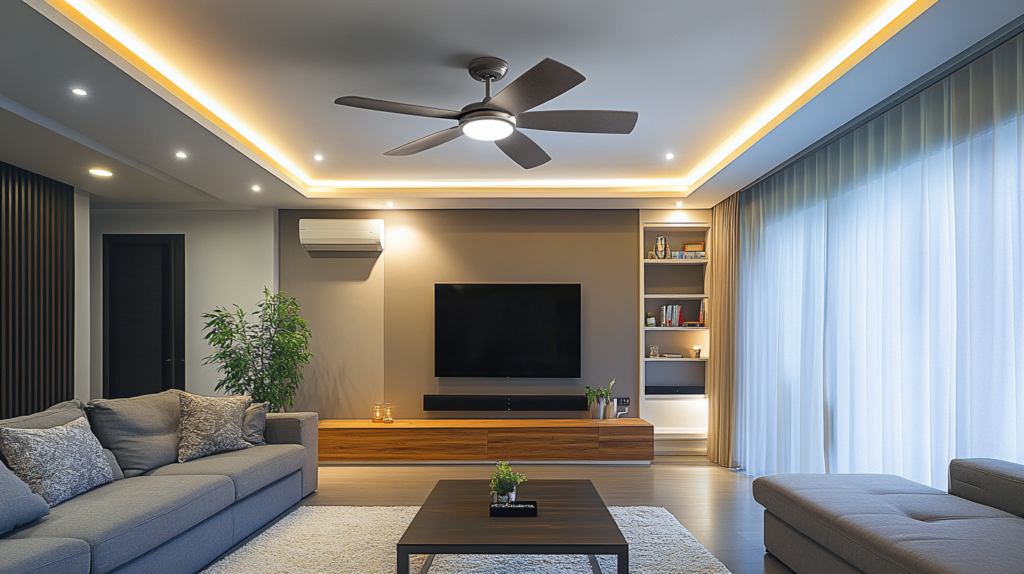
Excessive vibration from a ceiling fan or other fixture can cause your light bulbs to burn out prematurely. The constant shaking can weaken the filament inside incandescent light bulbs, making them more prone to breaking.
We should always check if the light fixture is stable and properly secured.
Using LED lights or CFLs in fixtures with high vibrations helps extend bulb life. These types of bulbs don’t have fragile filaments like incandescent bulbs. “LED lights last longer and resist vibrations better,” says Michael Smith, a lighting expert.
Consider using these sturdier options for areas with frequent movement or use heavy-duty “rough service” lightbulbs designed for such situations.
Depressed Socket Tab
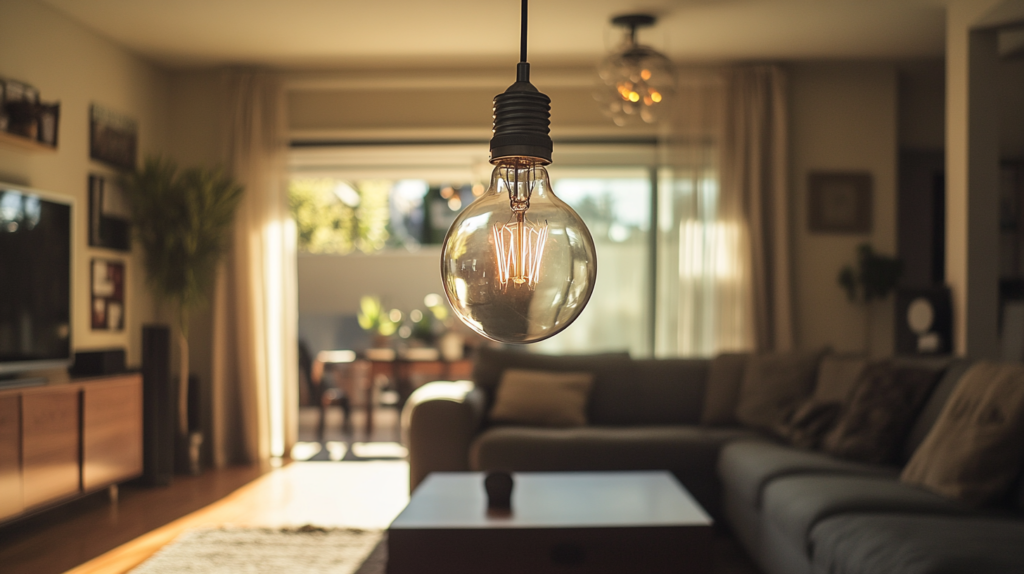
A depressed socket tab can cause light bulbs to burn out quickly. The metal tab at the bottom of the socket might not make proper contact with the bulb. This poor connection results in flickering lights or a loose bulb, which can shorten its lifespan.
To fix this, we need to turn off the power and gently lift the tab slightly with a screwdriver. Ensuring good contact helps extend our bulb’s life and prevents burning out. Always check for an issue with the socket if our bulbs go bad too soon.
Incorrect Bulb Type
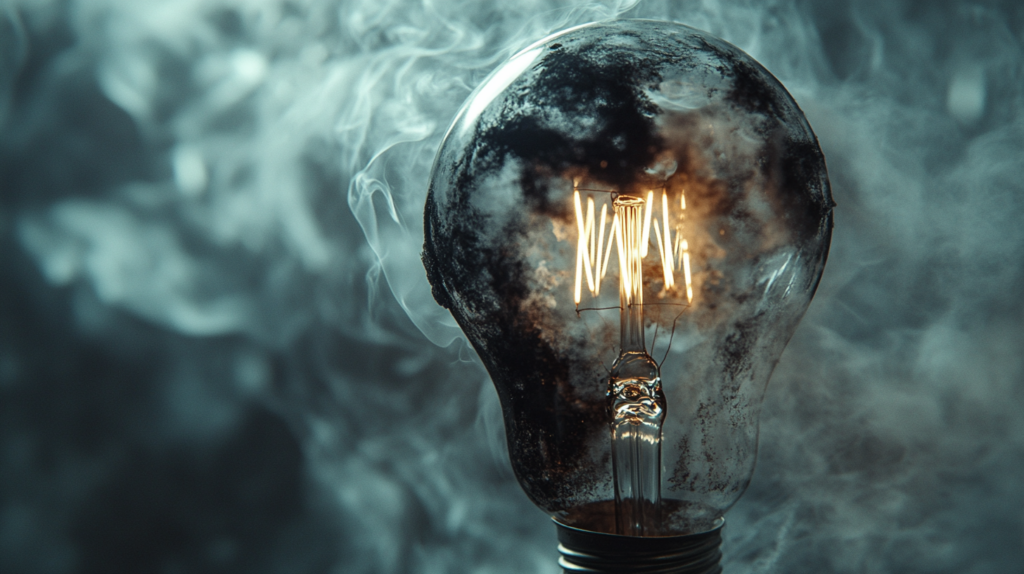
Using the wrong type of bulb can cause it to burn out quickly. For example, using incandescent bulbs in fixtures designed for CFL or LED lightbulbs will lead to faster burnout. Incorrect wattage also factors in; using higher wattage than recommended can overheat the socket and damage the fixture.
This happens often with recessed light fixtures and ceiling lights. These types frequently have specific requirements. Choosing a lower-wattage LED bulb that doesn’t exceed recommendations extends the lifespan of your lighting setup.
Switching to LED bulbs is usually a good move, but always check if it’s compatible with your fixture’s dimmer switch settings to avoid issues.
Poor Quality LED Bulbs
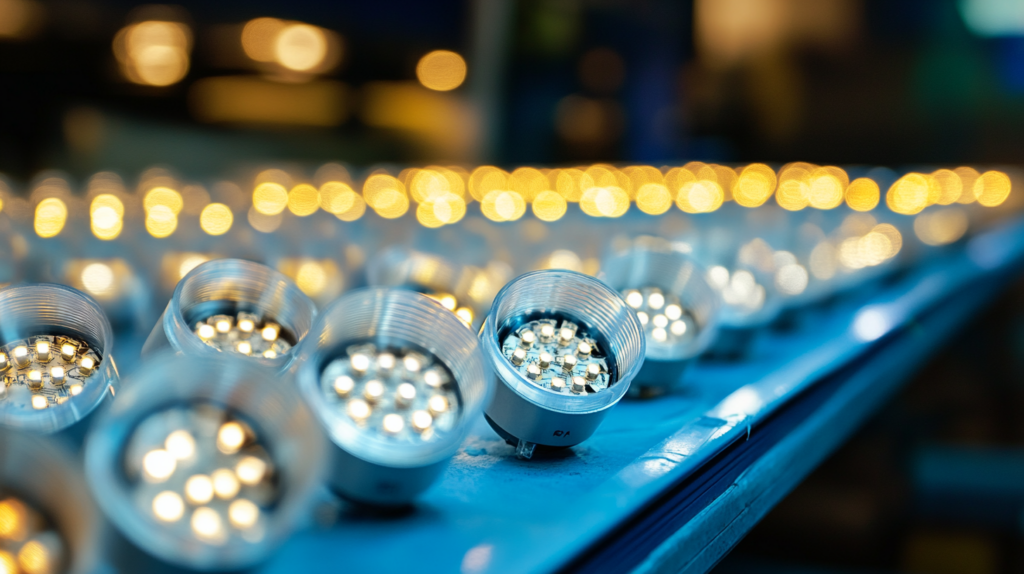
Not all LED bulbs are created equal, and poor-quality LEDs can burn out faster than expected. Low-quality components, insufficient heat management, and substandard manufacturing practices contribute to this issue.
Signs of Poor-Quality LED Bulbs:
- Inconsistent Light Output: If the light flickers or the brightness fluctuates, it could indicate inferior components.
- Overheating: Poor-quality LEDs might overheat easily, reducing their lifespan. A well-designed LED bulb should have proper heat sinks to manage the generated heat.
- Premature Burnout: High-quality LEDs are supposed to last thousands of hours, but low-quality bulbs might fail within a few months.
- Color Shifting: In some cases, the color temperature of the light shifts over time, a sign that the bulb’s components are degrading faster than expected.
Electrical Issues Leading to Bulb Failure
Electric problems can cause your light bulbs to burn out faster than usual.
Loose Connections
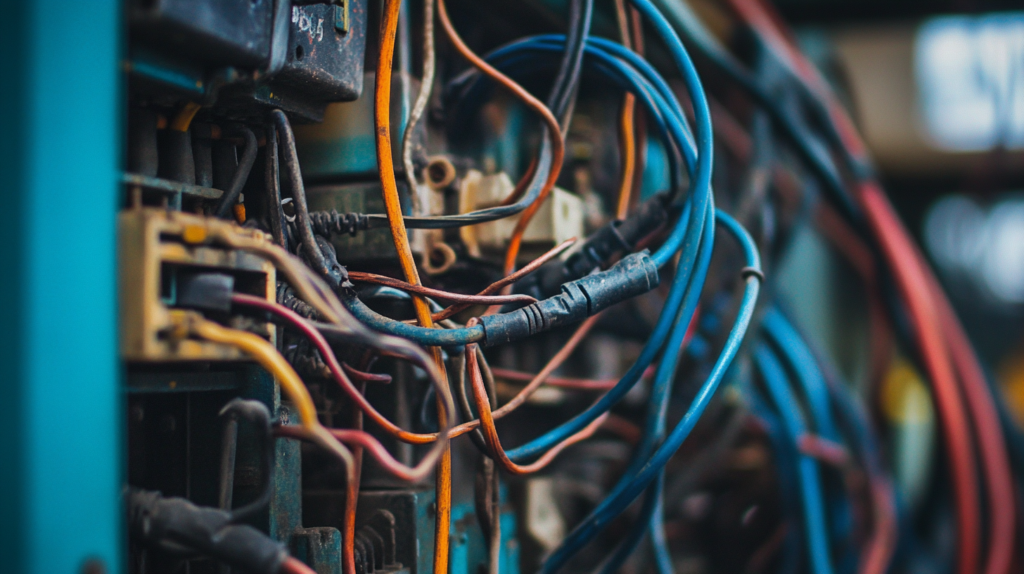
Loose connections can make light bulbs burn out faster. Let’s walk through some common causes and solutions to this problem.
- Faulty Wiring: Loose wiring might be causing your light bulbs to fail. Wires can become loose over time, leading to poor connections.
- Socket Contacts: The contacts in the socket that carry power may not be making a good connection with the bulb’s base. This can cause intermittent electrical flow and lead the bulb to burn out quickly.
- Depressed Socket Tab: Sometimes, the tab inside the socket gets pushed down too far. This makes it hard for the bulb to make good contact, causing flickering and reducing its lifespan.
- Light Switch Issues: A worn-out or faulty light switch can also cause loose connections. Old dimmer switches are often culprits in these cases.
- Fixture Vibration: Ceiling fans or fixtures in high-traffic areas can shake, causing wires to loosen over time. This vibration leads to poor electrical contact and bulb failure.
- Improper Bulb Installation: Installing a bulb incorrectly can lead to a bad connection between the socket and the bulb’s base, leading it to burn out faster.
- Overheated Fixtures: If your fixtures are overheating due to excess heat or using bulbs with higher wattage than recommended, this can loosen connections over time and shorten the lifespan of your bulbs.
Each issue has its own solution:
- For Faulty Wiring: Have a professional inspect and fix your home’s electrical system.
- For Socket Contacts: Gently bend the tab inside the socket upwards.
- For Depressed Socket Tabs: Lift them gently back into place.
- For Light Switch Issues: Replace faulty switches with new ones.
- For Fixture Vibration: Use LED bulbs designed for high-vibration environments.
- For Improper Bulb Installation: Ensure you insert bulbs correctly each time you replace them.
- For Overheated Fixtures: Check fixture ratings and use lower wattage bulbs if needed.
Taking care of these issues will help keep your light bulbs working longer and safer!
Short Circuits
Short circuits can cause your light bulbs to burn out quickly. These issues can lead to electrical fires if not addressed.
- Loose Connections: A loose wire in the socket or fixture can create a short circuit. This uneven power flow can cause the filament to break.
- Faulty Wiring: Old or damaged wiring is another cause. Exposed wires are dangerous and should be fixed by a professional electrician.
- Damaged Socket Tab: The metal tab inside the socket that carries power might get bent down over time. This reduces contact with the bulb and causes it to flicker, burn brighter, or fail.
- Excessive Fixture Vibration: Fixtures like ceiling fans often vibrate. This motion loosens connections and may result in short circuits, reducing the bulb’s lifespan.
Checking these common causes can help you stop your bulbs from burning out too quickly and keep your home safe from electrical hazards.
Faulty Wiring

Faulty wiring can cause light bulbs to burn out quickly. Loose connections in your home’s electrical wiring might lead to inconsistent power flow. This puts extra strain on the filaments inside the bulb, causing them to break down faster.
Also, short circuits in your home’s electrical system can overload the bulbs. Power surges shorten their lifespan and create a fire hazard. It’s crucial to inspect and fix any faulty wiring issues immediately for safety reasons and longer-lasting bulbs.
If our bulbs keep burning out too often, we should check if there is an underlying electrical problem causing it.
FAQ – Light Bulbs Burning Out
What are common reasons why light bulbs keep burning out?
Light bulbs can burn out quickly due to several factors, including issues with the home’s electrical system, using a bulb with incorrect wattage, or having older dimmer switches.
How does contact with insulation affect my recessed lighting?
If your recessed lighting comes into contact with insulation, it can cause the light bulb to overheat and burn out faster than usual.
Can using CFL or LED bulbs help extend the lifespan of the bulb?
Yes, CFL or LED bulbs generally have a longer lifespan compared to traditional incandescent bulbs and may be a better solution for reducing burned-out light bulbs.
Could there be a serious electrical problem if my light bulbs burn out frequently?
Frequent burned-out light bulbs might indicate a serious electrical problem such as damage to the socket tab or issues within the lamp or fixture that need professional attention.
Should I check anything specific in my fan fixture when troubleshooting burnt-out lights?
Check to see if there is proper power to the fixture and ensure that no part of the fan fixture is causing excessive vibration which could damage the socket or cause quick burnout of your light bulb.
I have been the project manager for Modern.Place since early 2016, spending three of those years working overseas on the manufacturing & procurement side of the LED lighting industry. Constantly learning and passing on knowledge to others while excited for what the lighting industry will involve into next.


